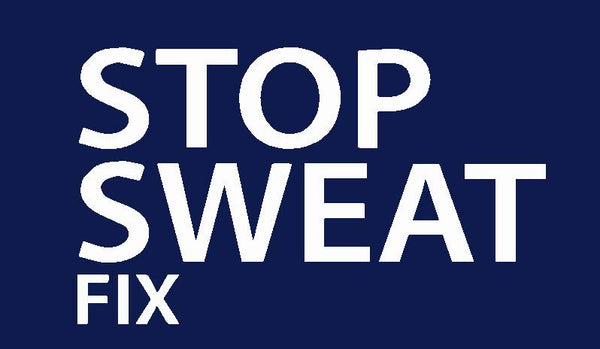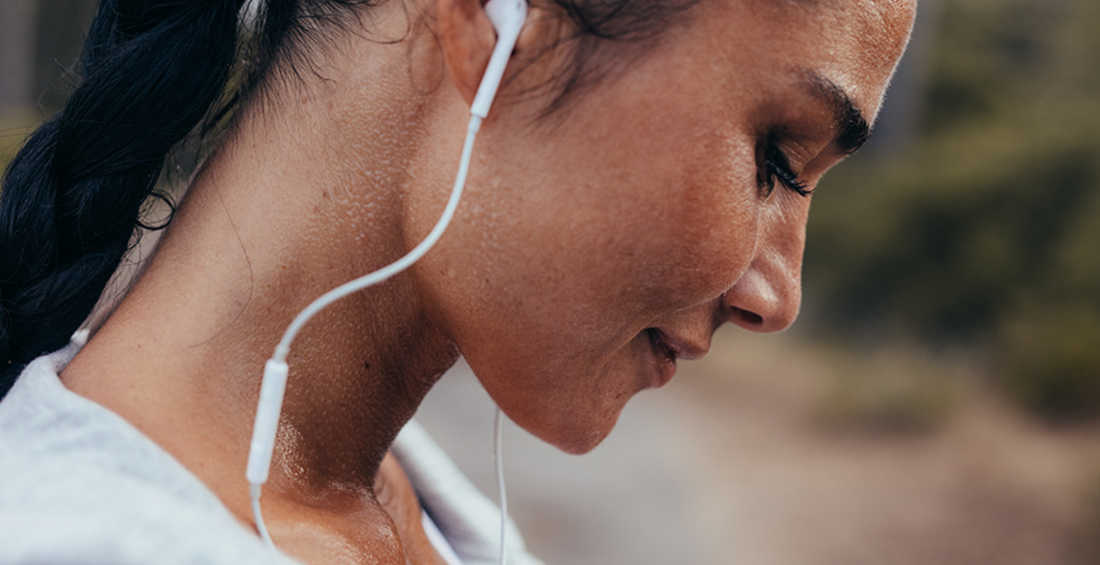Sweating while exercising is unavoidable, whether you like it or not, but is it a reliable indicator that you're burning calories? You may have heard that sweating during a workout helps you burn more calories, but before you put on a sauna suit and turn up the heat in your home gym, read on to find out what sweat can and can't accomplish for your weight-loss objectives.
Sweating is the body's natural method of temperature regulation. This is accomplished by releasing water and salt, which evaporate to keep you cool. Sweating does not burn calories in and of itself, but sweating away enough liquid will help you lose water weight. But it's merely a brief setback. You'll gain back any lost weight as soon as you rehydrate by drinking water or eating.
The Science of Sweating
Sweat is the salty liquid released by our sweat glands, which number between 2 and 4 million in the human body. Sweat is mostly used to keep the body cool as it evaporates from the body. Sweating is controlled by the autonomic nervous system. Signals from the neurological system are delivered to the sweat glands via the neurotransmitter acetylcholine. Sweat is then expelled via ducts on the skin's surface.
Everyone sweats at their own pace
It doesn't matter if you're sweating so much that you could sweep the floor while your friend is barely shimmering. Sweating ability varies a lot from person to person. If you're used to hot temperatures, you'll probably sweat more at first because your body understands how to cool itself efficiently. At different temperatures, different people begin to sweat.
Genetics and environmental determinants Age, Exercise Level, Weight Your weight and fitness level will have the greatest impact on the amount of sweat you produce during activity. With a heavier weight, your body needs more energy to function. Because there is more bodily mass to cool down, there is more perspiration.
You sweat more quickly the better you are. This is because the body's ability to regulate temperature improves. Sweating earlier allows your body to cool down more quickly. This enables you to train for longer periods of time and at a higher intensity. Others, however, may have a hard time to stop sweating during exercise due to a condition known as hyperhidrosis.
Sweat, calories, and fat: what's the connection?
This link between perspiration and the quantity of calories or fat burned has been made for decades, despite the lack of proof or facts to back it up. Sweating does not burn any calories, yet it can cause us to lose weight by causing us to sweat. This setback, though, is just temporary. We can anticipate regaining this weight as soon as we rehydrate by drinking water. As a result, increasing our sweat production by working in hot environments or wearing heavy clothing will not result in extra fat loss.
So, how does one go about losing weight? The only way to lose weight is to stick to a strict diet and create a calorie deficit. In addition, a regular workout routine is required. There are numerous possibilities, including strength and resistance training, aerobics, running, bicycling, and even yoga. We must figure out what works best for ourselves.
Is it even true that sweating burns calories?
The quantity of sweat you produce does not indicate the quality of your workout. When we look at our saturated t-shirt after a tough workout, it causes water weight loss, which can be restored by rehydrating. Weight loss and calorie burn are determined by the intensity of your workout regimen rather than the amount of perspiration produced. Calories can be burned in non-sweating activities such as yoga, swimming, mild weight lifting, and working out in cool conditions.
Can Sweating Help You Lose Weight?
In a technical sense, no. Fat burning is a metabolic process.
During a hard fat-burning workout, you'll undoubtedly break a sweat, but the sweat isn't the reason you burn fat.
So just because you're sitting in a puddle of your own sweat doesn't imply you've burned a ton of calories. Your body breaks down carbohydrates and fats to produce adenosine triphosphate (ATP), your body's energy currency, while you exercise.
Your brain signals that it's time to sweat when your core body temperature rises, whether from exertion or heat. When moisture on your skin evaporates into the air, it releases heat, which helps to return your body temperature to normal.
What Does "Carole Burn" Really Mean?
A successful calorie burn is determined by two factors: length and intensity.
Current physical activity standards indicate 150-300 minutes of "moderate" intensity physical exercise or 75-150 minutes of "vigorous" activity each week to achieve maximum workout outcomes. Adults who are aiming to lose weight should increase their moderate-intensity activity to 300 minutes (five hours) or 60 minutes on most days of the week, according to guidelines.
Isn't sweating a sign of a good workout?
"Push yourself to the next level!" we've all heard fitness instructors urge. "Sweat it out!" says the narrator. "It's functioning if it's burning!" It's natural to believe that physical symptoms of a "good" workout—such as sweating, burning, and even pain—indicate a "good" workout.
Sweating, on the other hand, does not necessarily indicate that your workout is better or worse. Intense workouts will cause you to sweat more than low-intensity activities, but all this indicates is that you're losing fluid, which is only temporary.
Furthermore, how much you sweat is influenced by your surroundings as well as your level of acclimatisation to heat. If you work out in a humid atmosphere, for example, your Perspiration will be unable to evaporate because the air is already saturated with moisture. You may feel as if you're sweating more as a result of this. If you're used to working out in hot weather, your body will regulate your temperature more quickly than someone who works out in temperate weather.
During exercise, how much sweat would be enough?
When it comes to sweating, one size does not fit all. Stop fretting about not providing enough throughout your workout because, exertion isn't always linked to sweat production, no matter how many hills you climb, you can go for a bike ride on a cold day and scarcely sweat. Sweat evaporates more slowly with high humidity or poor airflow, giving the impression that you are sweating more. In the opposite situation, your skin may appear dry, but the sweat is simply draining at a faster rate.
suggests taking an antiperspirant as a first line of defence if you tend top sweat a lot when working out.
Apply no sweat spray to minimise sweating:
- Underarms.
- Hands and feet.
- Back and Body
Last but not least
Sweating away excess water weight can help you lose a few pounds quickly. This strategy is used by wrestlers and horse jockeys who must compete at a specified weight.
The calories eliminated, however, aren't large, and this isn't a healthy strategy to lose weight in general. In a study, sauna-induced rapid weight loss was found to have a negative influence on women's athletic ability in one study, but additional research is needed.
If you're attempting to lose weight, the healthiest approach is to take it slowly. Adopt a whole-foods-based diet and exercise on a regular basis. Your doctor can also assist you in developing a plan that is tailored to your specific needs.

